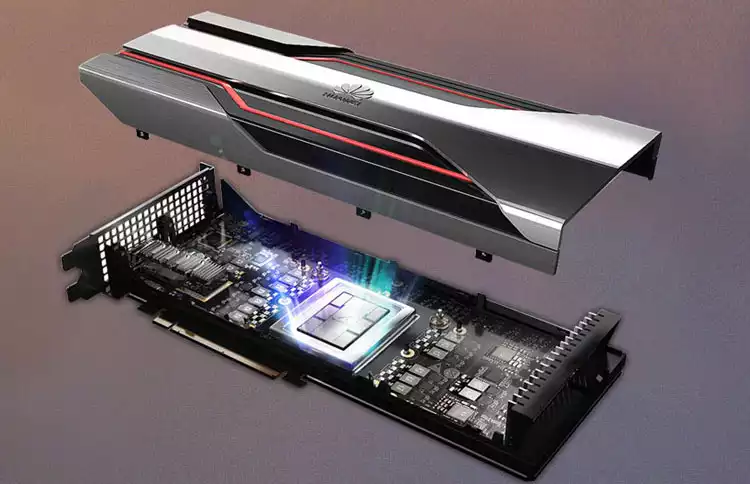AMD and Nvidia dominate the discrete GPU market, and Intel will join the fray later this year. The question is, what would you call it if Huawei entered the graphics card manufacturing business as well?
This is not a meaningless question. A Korean news publication (The Elec) claims to have solid sources that Huawei is moving in that direction. According to the article, Huawei plans to spin off its cloud and AI business group this year "to enter the GPU server market currently dominated by Nvidia."
Therein lies the trouble for gamers. Whatever Huawei plans, it is unlikely to have a direct impact on the consumer GPU market. But it remains an interesting development nonetheless.
For one thing, the lucrative server market is typically where cutting-edge technologies get their foot in the door before they enter the consumer market. I am purely speculating here, but if Huawei has great success in server graphics, it may move into consumer at a later date.
But there will be major hurdles. Not least of which is the antagonistic relationship between Huawei and the U.S. government over the issue of Chinese spying. Last May, Huawei was added to the U.S. Department of Commerce's Bureau of Industry and Security's list of companies, effectively barring U.S. companies from doing business with Huawei.
The situation is a bit more complicated (and ongoing), but if Huawei does decide to release a consumer GPU, it may have trouble selling it in the US. We will have to wait and see as to Huawei's ability to develop competitive graphics products in general. However, as our friends at Tom's Hardware point out, it is worth noting that Huawei announced the Ascend 910 AI chip last year, claiming to deliver up to 256TFLOPS of half-precision (FP16) performance. This is twice as fast as Nvidia's Tesla V100.
The Ascend 910 AI chip is also notable for being manufactured on TSMC's 7nm+ manufacturing process. This is the same chip used in the company's Atlast 300 PCIe 4.0 accelerator card (pictured above), underscoring Huawei's ability to manufacture products based on cutting-edge hardware and technology. Huawei already manufactures notebooks, so it is not strange that the company would someday want to include its own graphics chips in notebooks as well.


Comments